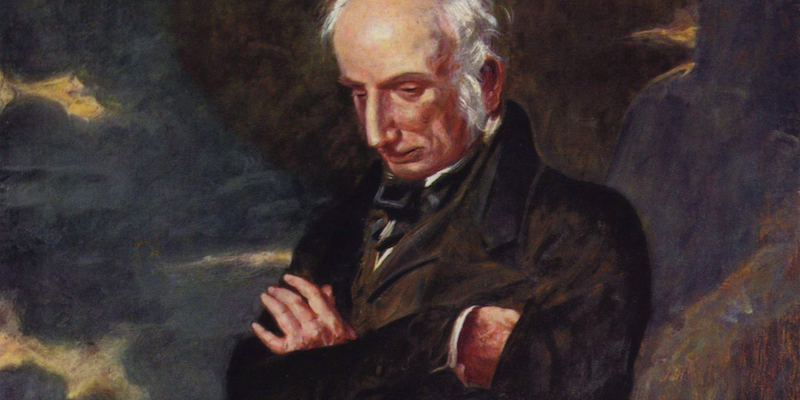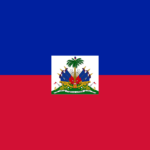Did anyone actually . . . like William Wordsworth?
It’s William Wordsworth’s 251st birthday today, and we’re celebrating by taking a look at people who didn’t like him. (Why not?) For someone who had such wonder and amazement in his heart for, say, a mountain, Wordsworth was not a warm guy; he said of himself that as a child he had a “stiff, moody, and violent temper,” and judging by his interactions with his peers, that temper may not have totally dissipated. Here are a few notable contemporaries whom Wordsworth once alienated:
Samuel Hazlitt resented Wordsworth for spreading rumors about his “beastly appetites.”
It’s said that while visiting his friend, the poet Samuel Coleridge, Hazlitt made a pass at a woman in a tavern in the Lake District, and when she rejected him, he lifted her skirts and spanked her (no, Hazlitt!). The woman’s friends showed up to enact payback on Hazlitt, so Coleridge sent Hazlitt to take shelter in the house of Coleridge’s best friend at the time, William Wordsworth. Over the years as their political sensibilities diverged from Hazlitt’s, Coleridge and Wordsworth embellished this story, which they told often. Benjamin Haydon, friend of Hazlitt’s, says that by 1817 Wordsworth spoke “with great horror [of] Hazlitt’s licentious conduct to the girls of the Lake & that no woman could walk after dark for ‘his Satyr and beastly appetites.’” This seriously discredited Hazlitt in literary circles. (To be fair, Hazlitt should not have spanked that woman.)
Wordsworth’s Hazlitt slander may have been spurred by the fact that in 1814, Hazlitt dissed Wordsworth’s The Excursion in print, saying though it was beautiful, Wordsworth was one of the “greatest egotists that we know of.” No wonder no one wants to write negative reviews!
Samuel Coleridge was Wordsworth’s frenemy for years.
How the tables turned from joyfully shaming Hazlitt! As sometimes happens with BFFs, Coleridge and Wordsworth gradually tired of each other: Coleridge got annoyed by Wordsworth’s conservatism, and Wordsworth took issue with Coleridge’s instability and opium addiction. So, as the New York Times points out, when Coleridge and Wordsworth collaborated on the collection Lyrical Ballads, Wordsworth rudely insisted on his name being the only name on the title page and retained sole copyright. Coleridge agreed to this, but was understandably hurt—wouldn’t you be too if your best friend tried to snipe your publication credit?
Later, Coleridge would write that he “was repelled by the infinite number of dissonances which [Wordsworth’s] way of thinking, feeling and arguing created with my own.” And that’s not all he had to say about Wordsworth: “Recently all the shortcomings, each marked him in his early manic manly years, have increased considerably; the grand flourishings of his philosophic and poetic genius, have withered and dried.” Yikes.
Lord Byron referred to Wordsworth as “Turdsworth.”
Yes . . . “Turdsworth.” Thanks to Michael Wood’s review of Susan J. Wolfson’s Romantic Shades and Shadows in the London Review of Books, we know that poets often made fun of Wordsworth’s all-too-literary name; while Coleridge (still friends with Wordsworth at this point) asked Wordsworth punnily to “tell me what my Bird’s worth” when forwarding a copy of his poem “The Nightingale,” Lord Byron’s pun was slightly . . . edgier? More juvenile? It does have a sonic weight to it. Turdsworth.
Happy birthday, Wordsworth! And, sorry.





